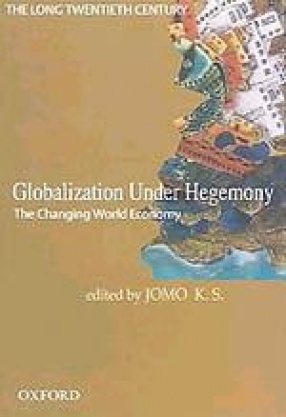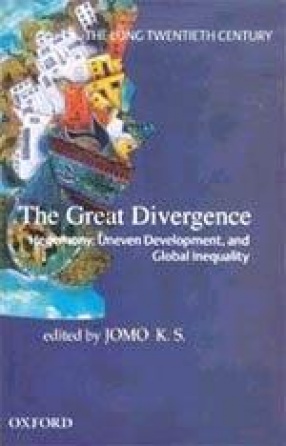
Jomo K.S.

Showing all 9 books


There have been few who have tried to grasp globalization as a process that pre-dates contemporary processes, back to the time of the trading empires centred on Asia and the Indian Ocean, or even modern imperialism from the late 19th century. The essays in this collection seek to explore one of the many aspects of this dialectic. The authors, of diverse theoretical orientations, generally do not discuss globalization directly. They take it to be a dialectical ...

One of two companion volumes, this collection offers rich historical insights into different dimensions of economic developments as they affect globalization. The essays trace factors that have been responsible for the growing inequalities between the North and the South -- exploitative colonialism as well as trade, capital, and labour flows -- during the 'long twentieth century', the period from the mid-nineteenth century to the present. The initial essay ...

One of two self-contained companion volumes, this unusual collection surveys the transformation of the major regions of the South, during the course of the ‘long twentieth century’. Individual essays examine the transformation of particular regions of the South, highlighting not only the uneven development in the region, but also the unequal relations between North and South, often, but not necessarily, associated with political dimensions during the period ...

The history of modern economic thought associated with the emergence of industrial capitalism over two centuries ago was preoccupied with the question of economic transformation or development. This volume surveys important contributions to the economics of development by various economists, including many not normally considered as pioneers of development economics. The two chapters following the Introduction point to the role of imperialist considerations in ...

Development economics emerged in the 1950s and, during its first quarter century, evolved in the context of both the Cold War and docolonization. The ascendance of free market conservatism in the west in the early 1980s was followed by the consolidation of the counter-revolution against the ‘old’ development economics, together with a corresponding promotion of neoliberal economic policies that came to be known as the Weshington Consensus. Over the last ...

Historically, much of economic thought, especially until the 1960s, has been preoccupied with the central concerns of development economics. It is thus contemporary mainstream economics-dominated by those with a touching faith in the virtues and infallibility of the market-that emerges as almost exceptional when viewed in a longer-term perspective. Although economics has gone through many changes over the centuries, the original development concerns of economists ...

Many mainstream economists have claimed that globalization creates worldwide growth, and that economic liberalization will lead to economic convergence and lower inequality. It is now clear that since the 1980s the world economy has experienced slower growth as well as greater inequalities at the national level. The research in this volume provides rigorous empirical analyses of how economic liberalization has actually affected inequality, poverty and development ...

In 2000, UN member states pledged to halve world poverty by 2015, among other Millennium Development Goals (MDGs). But progress has been elusive since. The chapters in this volume address disparate problems in achieving the UN development agenda, from the complex effects of trade and financial liberalization to the realities of development aid, itself a central pillar of the MDGs. The unifying theme is one of economic and social integration, and an emphasis on ...

Unlike the 1950s and 1960s, when the rising tide of economic growth lifted most economies, the last three decades have been characterized by a paradox of greater international economic integration as well as divergent economic growth performances. In recent years, most developing countries have grown faster than the developed economies. But the converse has been true in the 1980s and 1990s, except for a number of mostly Asian developing economies. Hence, the ...
